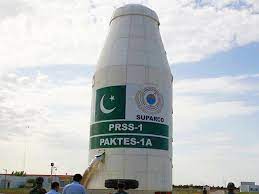Pakistan’s space program

Pakistan has a long history of interest in space exploration. The country’s space program, the Pakistan Space and Upper Atmosphere Research Commission (SUPARCO), was established in 1961.
SUPARCO has launched a number of satellites, including the Rashid Satellite (RS-1), which was launched in 2011. The RS-1 is used for remote sensing and telecommunications.
In 2019, SUPARCO launched the first Pakistani astronaut, Anousheh Ansari, into space. Ansari is an American-born Pakistani businesswoman and philanthropist.

Pakistan is also planning to send a probe to the moon in the near future. The probe, called the Pakistan Lunar Exploration Mission (PLEM), is scheduled to launch in 2025.
The PLEM is a joint project between SUPARCO and the China National Space Administration. The probe will orbit the moon and study its surface.
Pakistan’s space program is still in its early stages, but it is making steady progress. The country has a strong scientific and technical workforce, and it is committed to space exploration.
Here are some of the things that Pakistan is doing to advance its space program:
Investing in research and development: SUPARCO is investing in research and development in areas such as satellite technology, rocketry, and space exploration.
Collaborating with other countries: SUPARCO is collaborating with other countries, such as China, to develop and launch space missions.
Educating the public about space: SUPARCO is working to educate the public about space exploration and the importance of science and technology.
Pakistan’s space program has the potential to make significant contributions to the field of space exploration. The country has the resources and the talent to succeed in this area.





